After nearly 18 years cooking healthy food for generally health-conscious people in ethical establishments, including setting up Fusion Organic Café in Sheffield, I have been on a journey of discovery of what healthy eating is.
In this article, I intertwine my professional experiences as a gourmet health food chef, with my own experiences of a self-science stance to both eating and cooking/preparing. I will pepper this with links to the every growing research that is pouring in.
I am not trying to sell a view to anyone, simply trying to share a few learnt experiences arising out of deeply questioning what we are told we should eat.
Tasty has always been a very important factor for me as a chef, along with knowledge of what is beneficial in ingredients, ethics and cooking processes.
Most of all, I value experience, personal and shared, over opinion based on external sources derived from a generalised view. Science is key, but for me it must pair up with experience if it’s to be of any real use. I also think we need to go deeper than calorific, mineral and vitamin values, and I hope to show that there is some interesting new research to show that the living elements of nutrition – our bacterial realms in our guts, play a much bigger role than was previously though.
Equally important, are the sociological, psychological and behavioural aspects <touched on in this post>, as well as the art of cooking, and most of all, love as the key ingredient.
The self-honest realisation is that we are what we eat, and need to nourish ourselves if our goal is to be healthy, but I wonder if holistic nourishment is actually possible through self-deprivation.
I invite consideration of a different view of healthy eating: A healthy diet is more about self-science than hard discipline – finding healthier choices through what tastes good and feels healthy afterwards, so that healthy choices can become treats, and indulgence can become a key nutrient, (even if sometimes it’s a ‘less than healthy indulgence’ on paper).
There’s thousands of special diets’ out there that purport to be the answer to all ills, and though some may be appropriate in specific contexts, and I’ll wager that guilt <for example, arising from strict adherence to an oldskool nutritional view> would be far more damaging than what’s imbibed on a whim’s outing – so long as the healthy things still go in there.
In all these years I have seen how some (customers) who appeared neurotic, would also tend to be unhealthy, though they had a ‘near-perfect’ diet, whilst others who tended to more humbly and pragmatically allow themselves indulgences, and generally seek to enjoy their lives, were a lot more sprightly.
What I am advocating is balance – ‘one man’s meat is another’s poison’, getting to know oneself and body (self-science), and allowing both mindfully chosen indulgence as a preference to a limiting diet, as well as discernment – for example, when hearing that ‘sugar is bad’, one should be aware of the difference between refined white sugar, and say honey, raw sugar and natural vs manufactured alternatives.
Strict diets can be very worthwhile, especially as a cure of chronic conditions, but on an ongoing basis, if stress is the primary by-product, with chronic elevated cortisol levels, then the self-prescribed cure could be doing more harm than good.
A pragmatic and open minded approach, buying better quality food and thinking about what one puts on one’s belly, observing how one feels seems to me the best way forward. As for ‘all bad’ foods – there might be some ingredients that are fairly pointless, but if you enjoy eating something, it is probably doing some good – self-science along with knowledge of what’s health-ful, will in my experience help one begin to find a healthier equilibrium.
However, we also need to listen to our body <which is us as much as our brain> if we are to be true scientists – a path of ever greater awareness, through both self-science, and research, will lead us to find the foods that are healthy for one’s quirky individual self. So in my view, the first step towards cultivating this self-kind attitude (that’s essential if the self-science is to be holistic), is to simply become more aware of what we eat, how it tastes, how we feel afterwards, and where it comes from.
Health can overpower
“Let food be thy medicine and medicine thy food”
Hippocrates, who also said in the Hippocratic oath doctors swear to: “apply dietetic measures for the benefit of the sick, and do no harm to any human being.”
The idea that food is medicine no doubt goes right back to our very beginnings. A resurgent idea, or if you like, a phenomena that I have been noticing, is idea that Health can overpower Disease.
The observations that our attitude can have as much impact as the actual foods we consume, and that agenda-free self-love can have a large impact on health, has a resonation in the world-within worlds that is our gut’s ecosystem.
“nothing in nutrition and health makes sense except in the light of the gut microbiome.”
Recent research in microbial science has shown some fascinating correlates between what we put in our guts, and our overall health, and even our DNA. Starting with recent realisations that we have brain cells in our guts, emerging research offers scientific basis for a completely new approach to diets and healthy eating, a changing of culture.
‘Overall, dietary changes could explain 57% of the total structural variation in gut microbiota whereas changes in genetics accounted for no more than 12%.’
The field of Macroecology needs to be integrated into our view of health. From a recent study of Tanzania’s hunter-gather Hadza tribe:
Here we can also see the possibility that health can indeed overpower:
‘The scientists found that specific groups of microbes transferred from lean mice to their obese cage-mates, who began with less diverse microbial communities. The transfer only occurred in one direction: from lean to obese mice. This transfer appeared to prevent obesity and encourage metabolic profiles resembling those of lean mice.‘
A sweep of recent research shows that:
a) There is a strong connection between biodiverse gut health and overall health, and that microbes play a key role, both positively, and negatively, by way of Enterobacteriaceae.
b) That the key to weight loss, obesity and helping to cure autoimmune diseases such as diabetes may lie in gut bacteria.Microbes also play an important role in Cancer.
c) That modern diets vs ‘archaic’ hunter gatherer diets,are often bad for microbial diversity, and worse, that we may be losing some of the most beneficial microbial friends with our ultra clean food culture that often trends towards mono-dominance, rather than diversity:
‘Changes in human ecology may lead to the homogenization of human-associated microbial communities, with resulting erasure of key features of the evolutionary histories of our microbiotas. Therefore, it is imperative that our human microbiome be sampled as thoroughly and as rapidly as possible, particularly in societies that are undergoing dramatic cultural, socioeconomic and technological transformations.‘
d) That spices play a key role, also in keeping bacterial colonies healthy for us, and seem to offer balance to Enterobacteriaceae
Modern food myths:
Current research is making leaps and bounds in terms of understanding which foods are particularly healthy.
Some taken for granted assumptions about what foods are healthy are being busted. One is the idea that all ‘fat is bad’, and the rise of the Paleo diet is in line with research that suggests cholesterol is a key nutrient for a healthy brain. If one chooses to eat animal products, then maybe what we add in our diets is as important as what we leave out.
As always, I seek for an integrated view, after balance, and I think the Paleo ban on grains is unrealistic, and so therefore, for me not something I abide to.
I do think choosing healthy grains is important, as well as looking at what are healthy carbs, with the key variable being the cooking process, with the secondary being quality of ingredients/products, and third being variety/strain of the grain used. Bread is such a wonderful thing, so for me, it’s more about knowing some of the facts on different kinds of bread, and, linking back to the gut microbes, knowing the importance of slowly made bread – ‘it’s likely that the fermentation of the sourdough changes the nature of the starches in the bread, creating a more beneficial bread.’
Once again, rather than putting something <like salt> in an all bad box, I suggest it’s better to find out which foods compliment one’s dietary choices.
Bread and yeast leads nicely on to alcohol, where once again microorganisms play a key role, there seems to be a world of difference between ancient techniques and industrialised production methods, and as is often the case, slower seems to be better.
To pick another one of a growing list (this one chosen because of my own experiences) – coffee is not as bad as some would make it seem, though balance is always advocated – along with experimentation!
So as far as food types to include/avoid, what you include seems to be almost more important than what you exclude, at least where diets are concerned.
Unnecessary foods that cause harm
There are many products that are sold to combat one specific symptom of a poor diet (eg obesity), which are not designed from a holistic/systemic perspective, and therefore cause problems elsewhere. Some would say that’s putting it kindly.
Artificial sweeteners are I think truly harmful/non-beneficial ingredients, that don’t even help one to lose weight.
I can’t say I stick to a strictly organic diet, but I certainly try to avoid food that has added chemicals, the most prominent examples being fast food and ready meals (though some might say otherwise, I think this is the problem with looking at just data, based on flawed assumptions on what makes a healthy diet).
Once in a while is fine I’m sure, and I do occasionally opt for a service station burger if I’m hungry, but they never give me much energy, and often don’t feel great in digestion. In addition to suspect ingredients, for me it’s the lack of conscious effort, creativity and freshness – lack of love, that makes them a pointless, if not damaging regular dietary choice.
I personally regard GMO food in a similar or even worse category, not so much because I am anti-genetic engineering per se, but because it is very much largely being driven by profit motives rather than furthering our planet and species, and long term studies are left to discovery and salvage, rather than safety and prevention. It seems GM foods may have a direct impact on our bacterial ecosystems too.
Another key area for me is meat and dairy, where buying local/organic is definitely advised – animal cruelty and overuse of antibiotics are two good examples of why it’s in everything’s interest to eat better quality food. Buying local also helps to to tap into your local microbial networks, and organic food is beginning to be proven scientifically better for health.
Moving forward
I think it’s the self-science-with-integrity that can lead one to fall in love with healthy eating, whilst still having indulgences that make you happy.
Some may well be hit and miss, but the only way we can find out, is to try things, and share ideas.
It seems collectively we need to look back to what our ancestors might have eaten, as well as to keep abreast with the latest science that may point towards the optimum foods to keep in one’s stores – the main idea being raising self-awareness of food, and eating food that is from the area you live in. Fermented foods are particularly beneficial it seems.
Changing buying habits is key, but I agree that it will take more than information spreading – a change in ‘environment’ is need too.
The idea of supporting local sustainable food has gained traction in recent years, though further shifts are needed – changing our microbial gut life is dependant on there being the right kind of food available at affordable prices, and there is a whole area I have left off this article – the enrichment of daily life that can come about from embracing guilt-free healthy lifestyles that surround getting good quality ethical/sustainable ingredients to our grateful guts – the daily/weekly/yearly rhythms that are iterated by following seasonal and stomach’s suggestions, are are wonderful things to get children involved with. Either way, it is in the interest of all of us to change our eating, buying and growing habits.
Growing your own is always the best plan 🙂
This is more of a preliminary exploratory sweep, rather than any comprehensive study – I shall be spending a bit of time over the next few months trawling for more research and better quality references.
Nowadays it is ever easier to cross reference sources – I have chosen mainly blog-based reports as they summarise well for quicker reading, as well as the fact that many are paid access, but in nearly all cases I have already checked via my university access, and their sources appear sound.
I run workshops in healthy eating, for children, teenagers or adults. I can be contacted professionally though linkedin.
I also run a private catering operation where I operate the healthy-tasty ethos in full force.
Foods that help our gut ecosystem biodiversity: <List will grow>
Honey
Cassava
Coconut
Pro-bacterial natural anti-infectants
Tomatoes
Turmeric
Kale – not raw
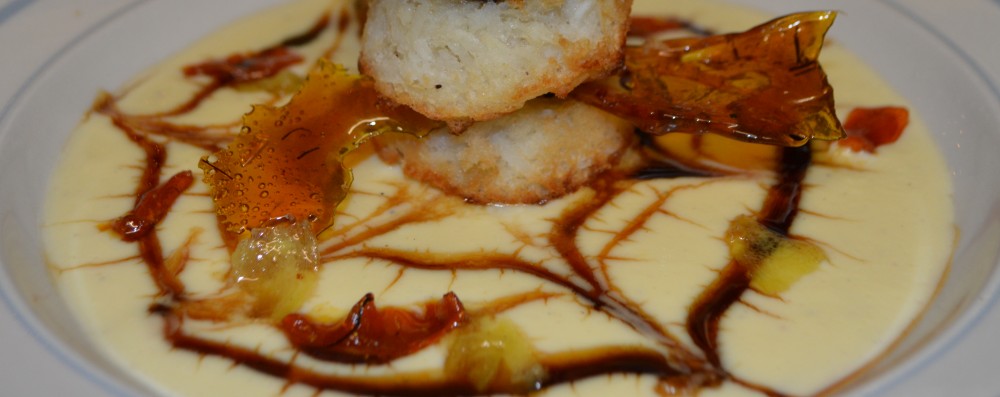
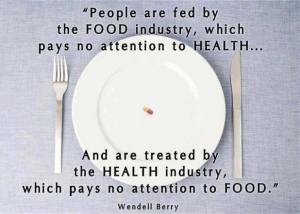
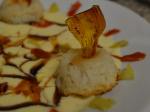

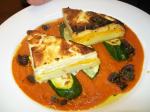


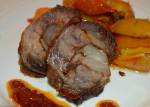

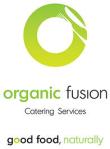
Pingback: The ‘soft power’ of Integrity | Organic Fusion Integrated